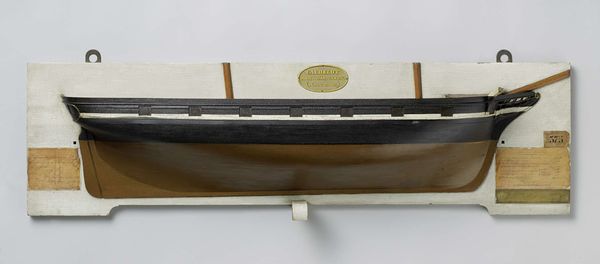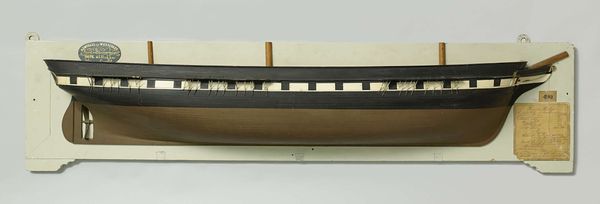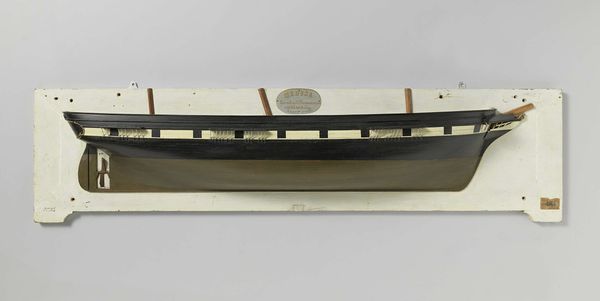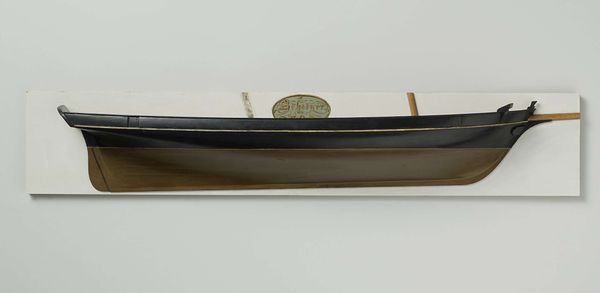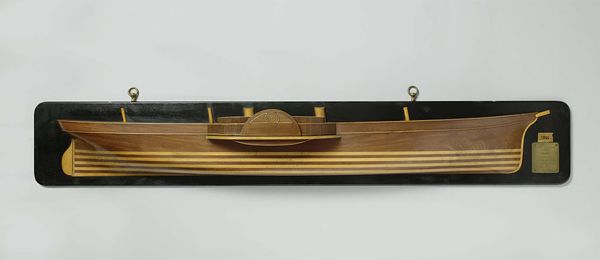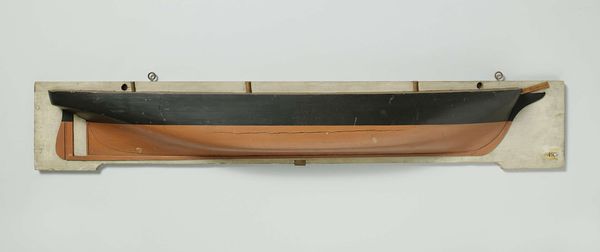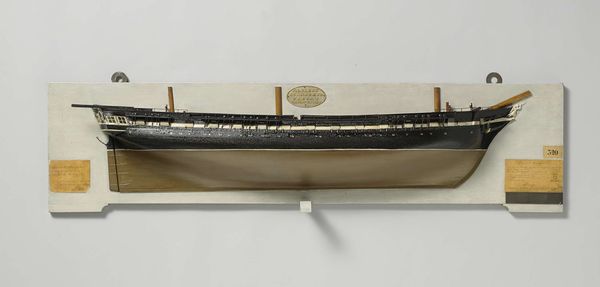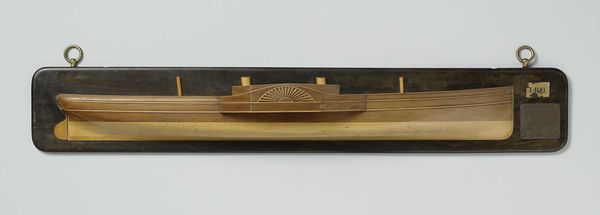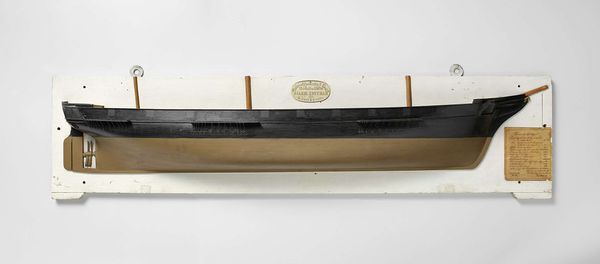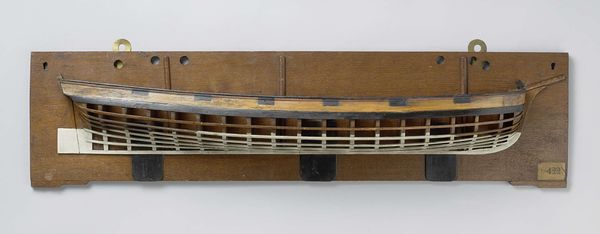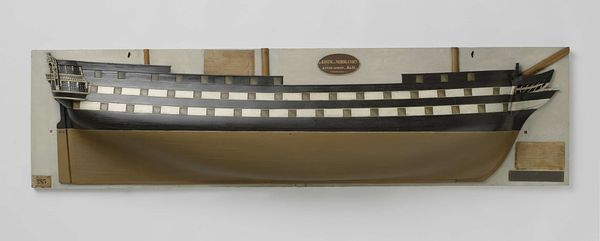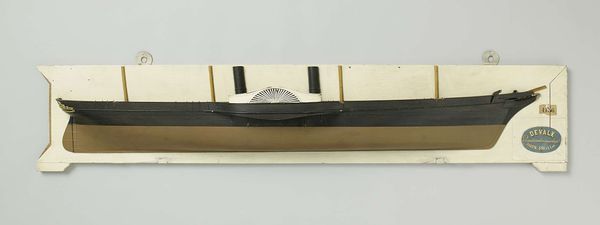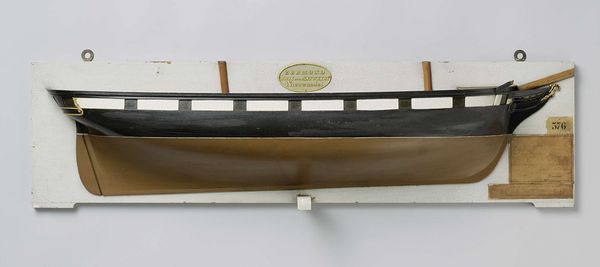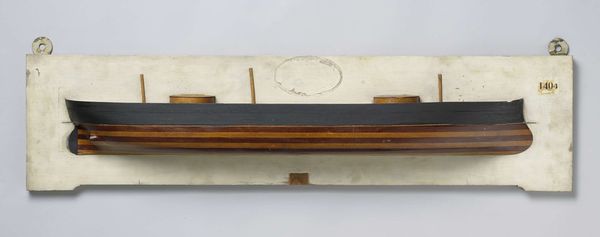
sculpture, wood
#
3d model
#
3d rendering
#
3d printed part
#
3d printing
#
plastic material rendering
#
virtual 3d design
#
product design photgrpaphy
#
3d shape
#
prop product design
#
sculpture
#
metallic object render
#
wood
Dimensions: height 37.5 cm, width 172.5 cm, depth 18.5 cm
Copyright: Rijks Museum: Open Domain
Editor: This is a Half Model of a Screw Steamer, created in 1863 by Rijkswerf Vlissingen. It looks to be crafted from wood. The object feels quite formal, almost austere, in its presentation. How do you interpret this work, especially considering its historical context? Curator: Looking at this half-model, I see more than just a ship design. I see the manifestation of 19th-century industrial ambition and the globalized networks it engendered. Steam power, for example, dramatically altered maritime labor, didn't it? I think we can interpret this design as an artifact tied directly to shifting economic power and labor practices across international waters at the time. What do you make of that tension? Editor: That's interesting! I hadn't considered the direct impact on labor. I suppose I was more focused on the technological achievement. Do you think that these shipbuilders may have intentionally omitted that tension, by showing a refined image of progress? Curator: Absolutely, it’s a powerful projection. We have to consider what such representations elide: the exploitation and often forced labor inherent in resource extraction and colonial trade that fueled these advances. By showcasing only the streamlined form, are the builders presenting an idealized, sanitized vision of industrial power, subtly concealing the social costs embedded in every plank and rivet? Editor: So, by displaying only the polished design, they might be glossing over the complicated circumstances that allowed the industrial sector to flourish during this period? It’s quite subversive when you approach it that way! Curator: Exactly! Analyzing these designs this way enables us to question what stories are privileged and whose experiences are marginalized in narratives of technological advancement. And perhaps it pushes us to seek out the voices of those who were on the margins of those narratives. Editor: Thank you; I'll remember to ask about that context going forward! Curator: Likewise, your observations sharpen my approach, reminding me how design reinforces existing power structures.
Comments
No comments
Be the first to comment and join the conversation on the ultimate creative platform.
